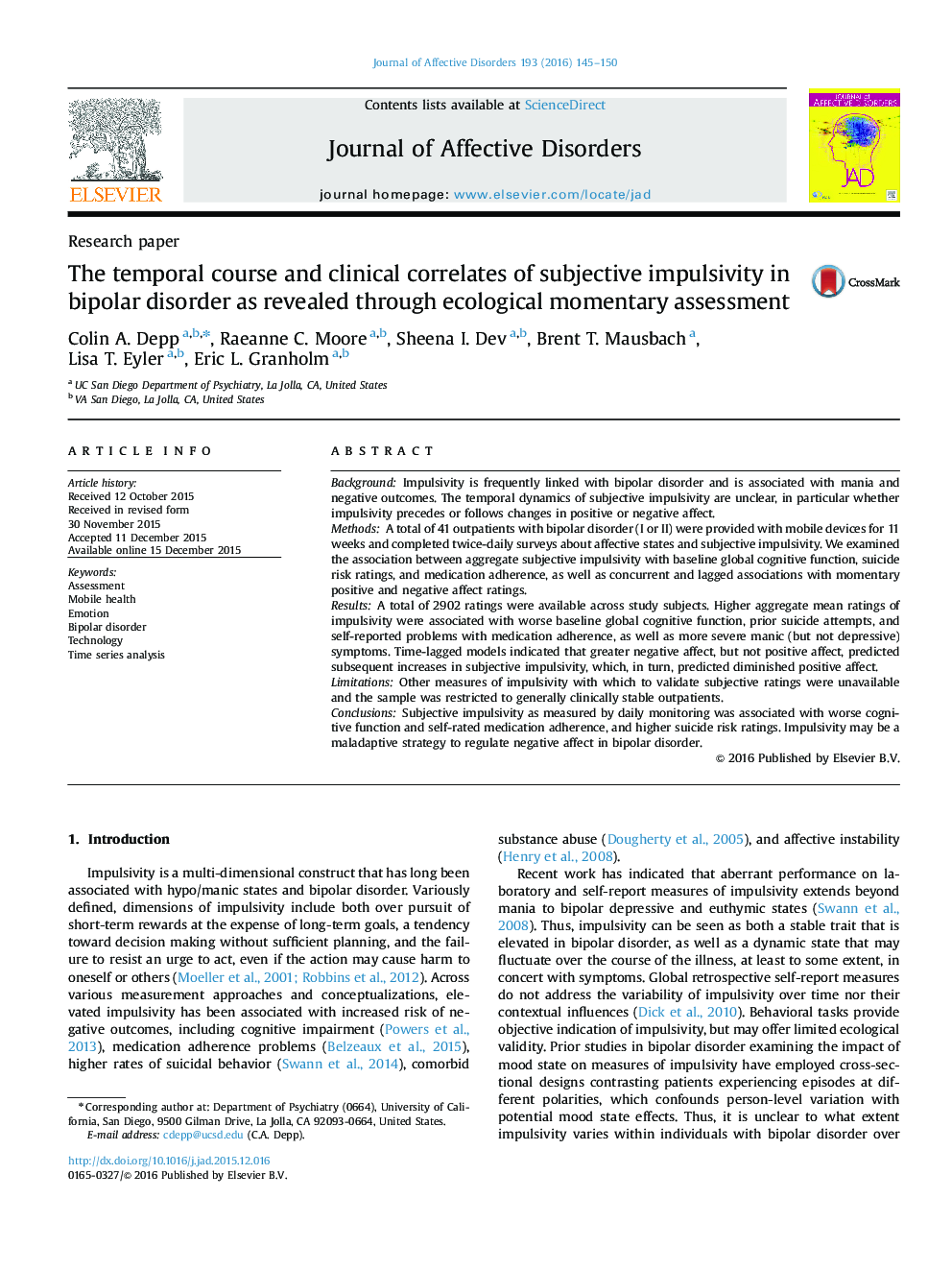| کد مقاله | کد نشریه | سال انتشار | مقاله انگلیسی | نسخه تمام متن |
|---|---|---|---|---|
| 6230449 | 1608132 | 2016 | 6 صفحه PDF | دانلود رایگان |
- We assessed subjective impulsivity in bipolar disorder via smartphone surveys for 11 weeks.
- Subjective impulsivity was associated with high suicide risk ratings, worse medication adherence, and poorer cognitive function.
- Increases in negative affect predicted greater impulsivity which, in turn, predicted diminished positive affect.
- Impulsivity may be a maladaptive strategy to regulate negative emotions in bipolar disorder.
BackgroundImpulsivity is frequently linked with bipolar disorder and is associated with mania and negative outcomes. The temporal dynamics of subjective impulsivity are unclear, in particular whether impulsivity precedes or follows changes in positive or negative affect.MethodsA total of 41 outpatients with bipolar disorder (I or II) were provided with mobile devices for 11 weeks and completed twice-daily surveys about affective states and subjective impulsivity. We examined the association between aggregate subjective impulsivity with baseline global cognitive function, suicide risk ratings, and medication adherence, as well as concurrent and lagged associations with momentary positive and negative affect ratings.ResultsA total of 2902 ratings were available across study subjects. Higher aggregate mean ratings of impulsivity were associated with worse baseline global cognitive function, prior suicide attempts, and self-reported problems with medication adherence, as well as more severe manic (but not depressive) symptoms. Time-lagged models indicated that greater negative affect, but not positive affect, predicted subsequent increases in subjective impulsivity, which, in turn, predicted diminished positive affect.LimitationsOther measures of impulsivity with which to validate subjective ratings were unavailable and the sample was restricted to generally clinically stable outpatients.ConclusionsSubjective impulsivity as measured by daily monitoring was associated with worse cognitive function and self-rated medication adherence, and higher suicide risk ratings. Impulsivity may be a maladaptive strategy to regulate negative affect in bipolar disorder.
Journal: Journal of Affective Disorders - Volume 193, 15 March 2016, Pages 145-150
